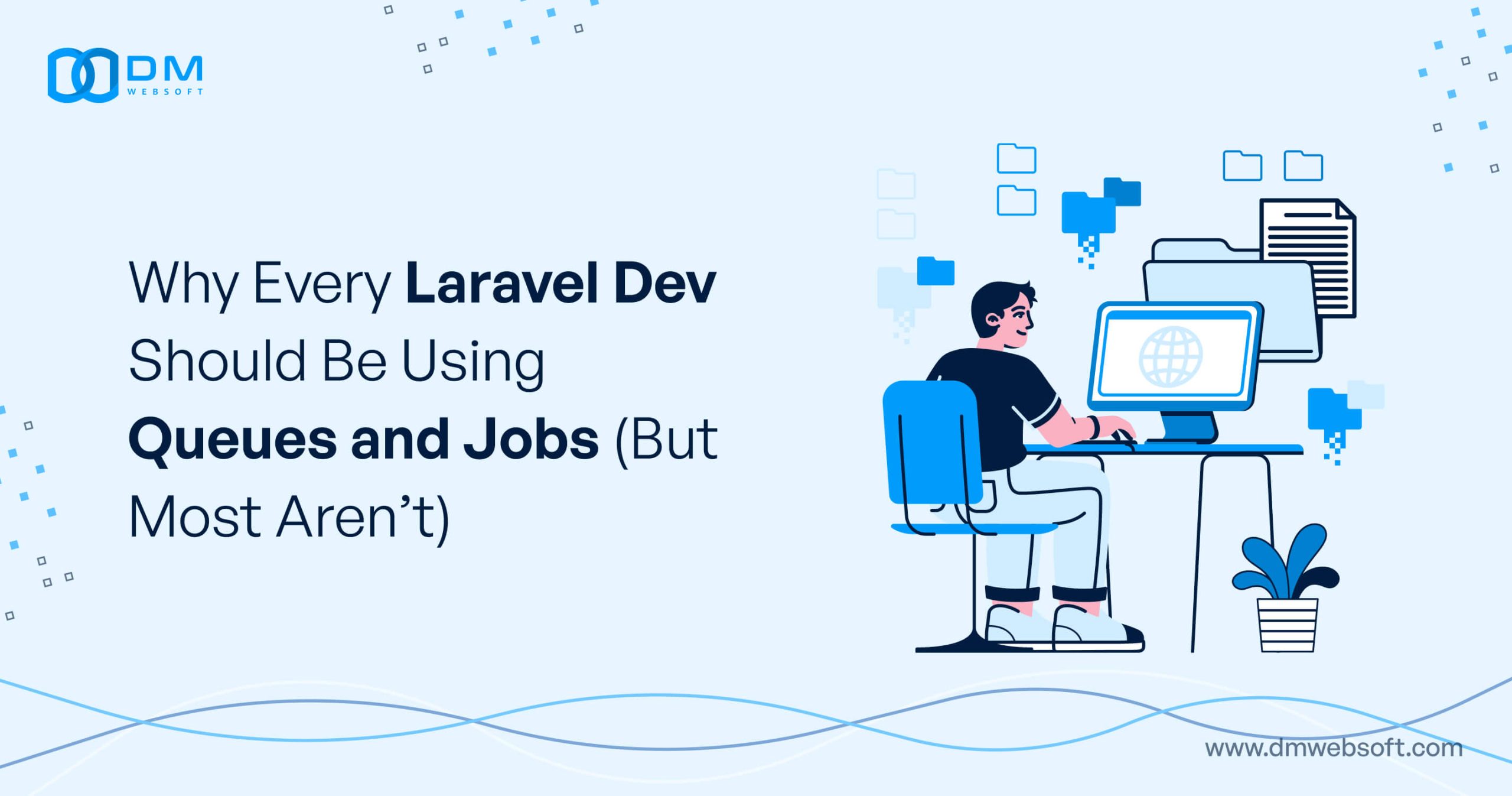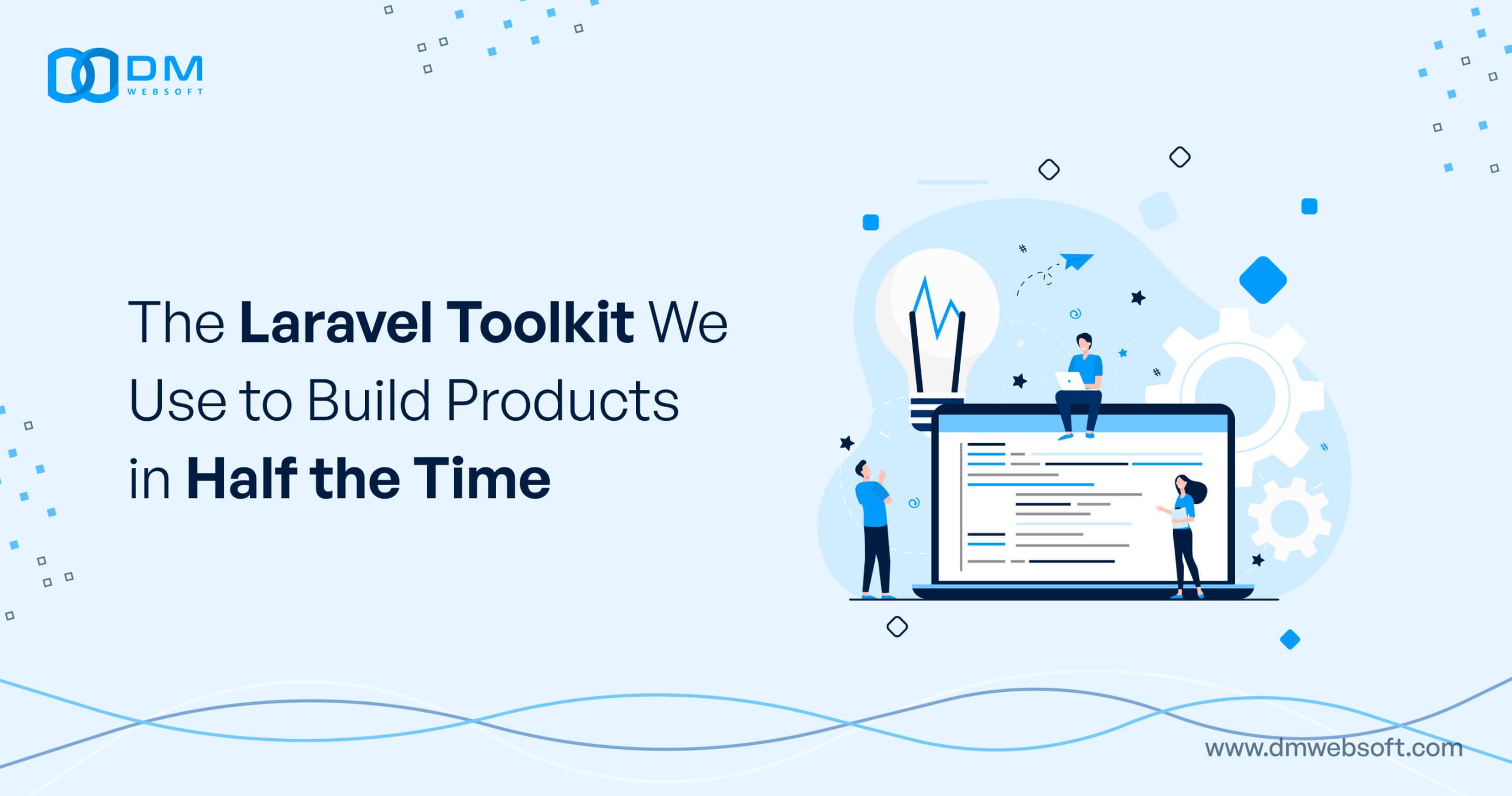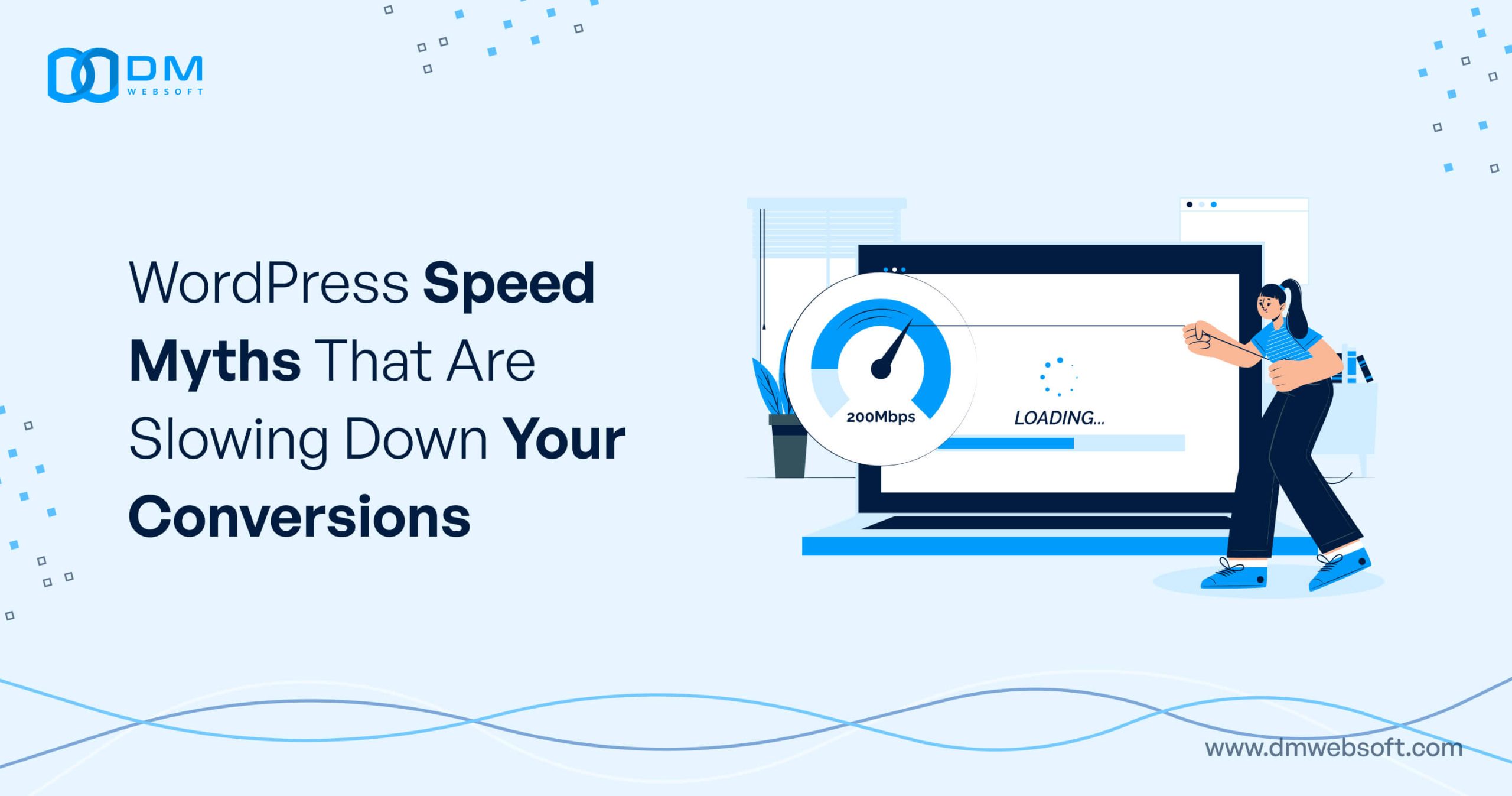DM WebSoft LLP exceeded our expectations! Their seasoned team of experts delivered a website that perfectly captures our brand essence. Their 15+ years of experience truly shine through in their exceptional web development skills.
Building Scalable Web Applications with Python Frameworks Like Django
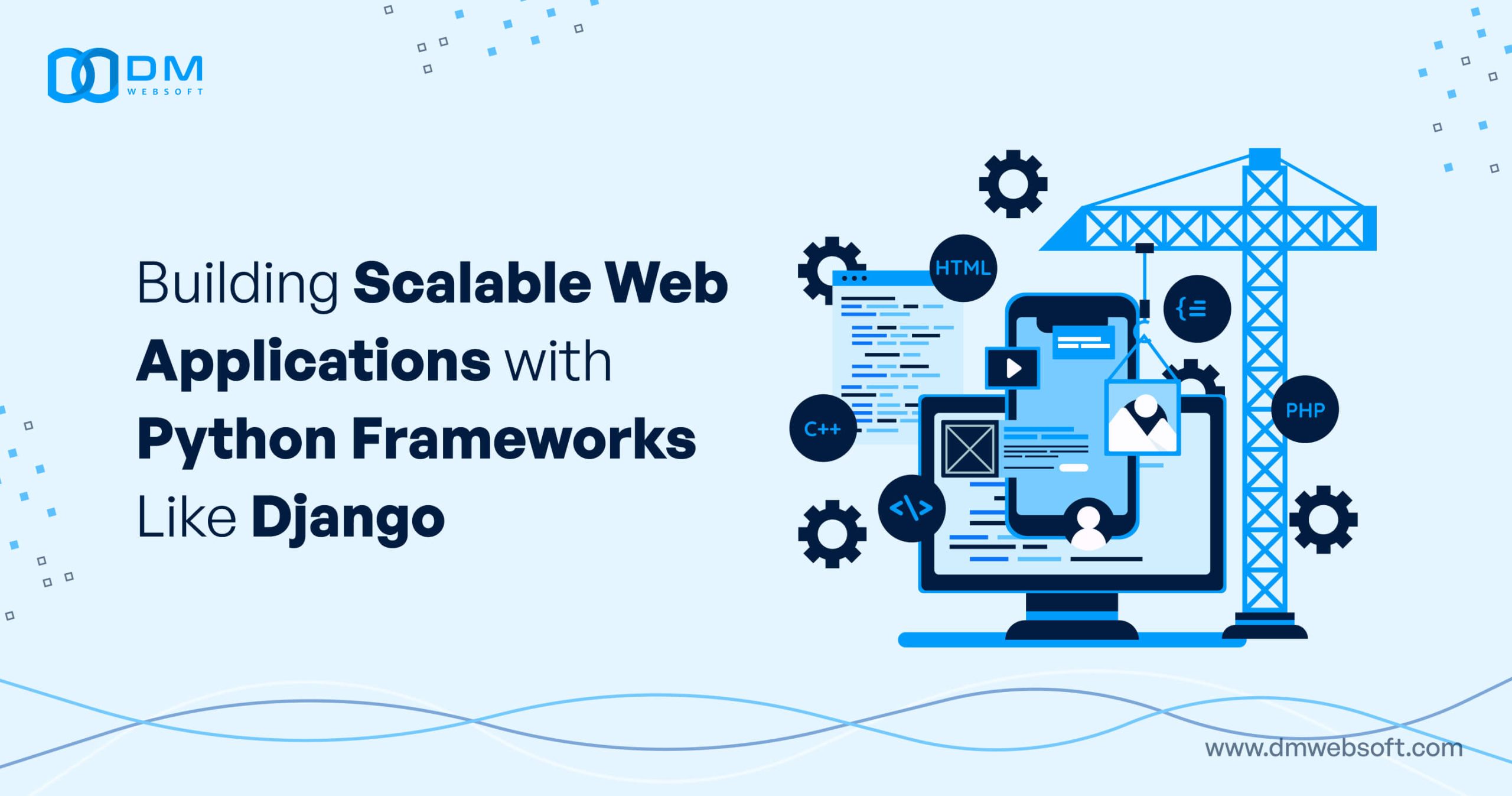
TABLE OF CONTENT
Get in Touch
Introduction: Building Scalable Web Applications with Python Frameworks Like Django

Scalability is one of the most important features in every modern web application if it needs to reach customer demands and ensure smoothness in user experience. It includes a startup that tries to develop its MVP or an enterprise that wants to extend its digital presence—the scalability is a mainstay that can support further growth. That would handle the increase in user traffic without affecting the performance of an app. That’s where Python web development and its frameworks, like Django, come into play.
Python has gained fame as one of the most in-demand languages in the case of web development services for its simplicity, flexibility, and strong community support.
In the stack of Python frameworks, Django leads the race in the development of high-performance web applications. Django keeps the great balance going by providing tools and libraries that help in rapid development. With this, scalability and security can also be kept in mind while one is building already complex applications.
No business can ever hope to be abreast of its game without having the right technology partner in place. DM WebSoft LLP is a professional web development company which specializes in scalable web applications using Python and Django. Our expertise empowers businesses through effective usage of Django, focusing on fast, secure, and mobile-friendly web designs—guaranteed solutions that grow with an increase in your user base. Our team knows the nuances involved in developing scalable solutions, which is why your custom software solution will be designed and built to support the future of your business.
In this series of posts, we will outline important features for developing scalable web applications using Django, why Python remains one of the top choices for any developer, how Django architecture supports its scalability, and how web development services from us can reimagine your digital presence. Be it e-commerce website development, website maintenance and support, or even SEO optimization for websites, this blog will present you with a comprehensive guide to make the right decisions for your next project.
Understanding Scalability in Web Applications

The most important aspects in the development of a web application, especially in today’s world, involve scalability. But what does scalability really mean for a web application, and why should any business concern themselves with it? In a nutshell, scalability is defined as a system that can support increasing numbers of users, data, and transactions without degradation in performance. In regard to web development services, the scalable application should handle increasing traffic seamlessly and provide fast load times, minimal downtime, and a consistent user experience.
This ability is more desired or coveted in e-commerce website development and mobile application development, as user experience and satisfaction are prime movers of success.
Why Scalability Matters Today?
The digital marketplace is highly competitive, and businesses need applications to scale up or down based on the fluctuation in their user base. A scalable app ensures the following:
- Seamless User Experience: No matter the number of users that come to your application, all of them enjoy a seamless experience.
- Cost-Efficiency: Scalable applications reduce constant reengineering. As a result, this feature saves time and money in the long run.
- Future Proof: With the right web development services and website maintenance and support, a business can assuredly know that its app is ready for future growth.
It is even more the case when one takes into consideration that the rate at which mobile devices are being put to use is on the increase. A responsive web design ensures the application will work seamlessly on desktops, tablets, and smartphones. The scalability and customer-oriented design in business operations keep the business ahead of others and in competition, especially business areas involving the development of mobile applications and custom software solutions.
Practice of Scalability by Python Frameworks
Python frameworks, especially Django, are renowned for their ability to support scalability in web applications. Django is designed with rapid development, security, and scalability in mind; hence it is preferred for building robust backend systems. Unlike many of them, Django comes with built-in features like an ORM—a Object-Relational Mapper, caching support, and middleware that contribute to building scalable and secure applications.
The point is, with the choice of a framework like Django, it allows companies to focus their resources on user growth, knowing very well that such infrastructure will scale for those users. That’s where DM WebSoft LLP steps in. As a professional company for Web Development Company, we utilize the power of Django for making scalable web applications, with specifications exact to what your business needs.
We employ experience whereby your application can handle everything, from a few low initial launches of users to thousands, even rapid scaling to a worldwide user base.
Why Choose Python for Web Development?
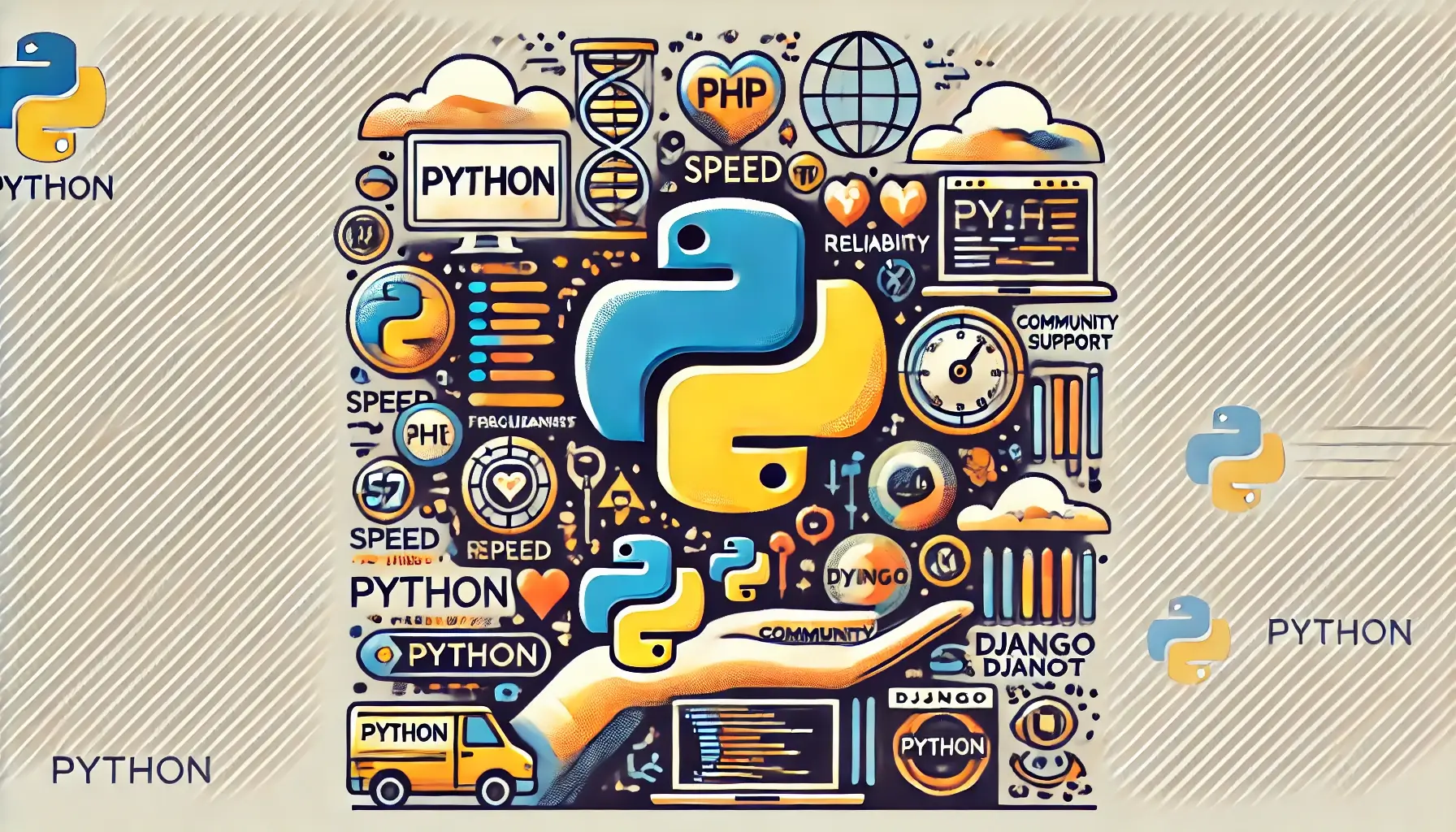
Python has carved its niche as one of the most popular choices for web development services. And that is no surprise, looking at how versatile, simple, and community-driven it is. In search of scalability for web applications, companies often land with Python as their potential solution. But what makes Python so powerful in the domain of web development with frameworks like Django?
Ease and Readability
Perhaps Python’s greatest strength is its simplicity. It’s touted as a language that uses mostly clean and very readable syntax, making it easy to write code much faster. That makes Python a very great choice for both beginners and expert developers who wish to focus on building features instead of struggling with complicated syntax.
This, for a company like DM WebSoft LLP, means faster project turnarounds and more maintainable code, ultimately saving clients money. Python’s simplicity also plays a major role in custom software solutions, enabling a business to extend and scale an application over time with minimal rewriting of their codebase. This is particularly important when undertaking mobile-friendly web design and e-commerce website development projects that require updates from time to time.
Rich Ecosystem of Frameworks
The Python ecosystem is full of robust frameworks for almost every requirement in web development. Besides being a wonderful pick for scalable web application development, Python has Django Web Development. Python offers other frameworks, too, such as Flask, for light and flexible projects. FastAPI and Pyramid create more options, allowing Python to face different needs, from small startups to enterprises.
However, scalability remains a special reason why Django rules. It by default features a host of inbuilt features which include its ORM or Object-Relational Mapping, middleware, and admin interface that speed up development considerably while keeping the applications scalable. DM WebSoft LLP harnesses the capability of Django to ensure that applications are secure and can handle high traffic volumes.
Strong Community Support and Libraries
Another reason Python keeps the leading positions in web development services is the huge community that supports the language. Such extensive library support for everything from data analysis to machine learning allows developers to easily integrate a bunch of cutting-edge technologies into their web development process. It also can help businesses embed intelligent features like recommendations, chatbots, and predictive analytics into their web applications.
A perfect platform that can effectively merge machine learning libraries with the robustness of frameworks like Django is what companies need. That’s where DM WebSoft LLP steps in to help businesses stay on top of their game with expertise in custom software solutions inclusive of AI capabilities.
Security and Reliability
Security is no doubt one of the critical issues of today’s digital world, especially when businesses have to maintain highly sensitive data. That’s where Python/Django enters: a language/framework that is focused on security. Django offers user protection against common vulnerabilities like SQL injection, cross-site scripting, and cross-site request forgery; thus, it’s an ideal choice in search of website security solutions without too much investment in Third Party tools.
Moreover, website security solutions are taken up seriously by DM WebSoft LLP, allowing businesses to be free and have peace of mind with secure coding practices; they also periodically perform website maintenance and support. We make sure that not only will our web applications keep performing seamlessly but also stay secure against threats that emerge.
Comparison to Other Languages
Web development has long been dictated by PHP development companies, but the rise of Python recently tipped the scale. Unlike PHP, Python extends its versatility to fields other than traditional web development, such as data science and AI integrations. This flexibility extends its application to being a favorite of businesses in innovative digital marketing strategy and interactive web experience.
In general, Python is a very good choice for projects of any level of complexity due to access not only to rich resources and extensive pools of skilled developers but also to ever-evolving levels needed within business environments. Be it e-commerce website development or a custom mobile app development project, Python ensures that your technological stack has now covered all bases come what may.
Deep Dive into Django: A Framework for Scalability
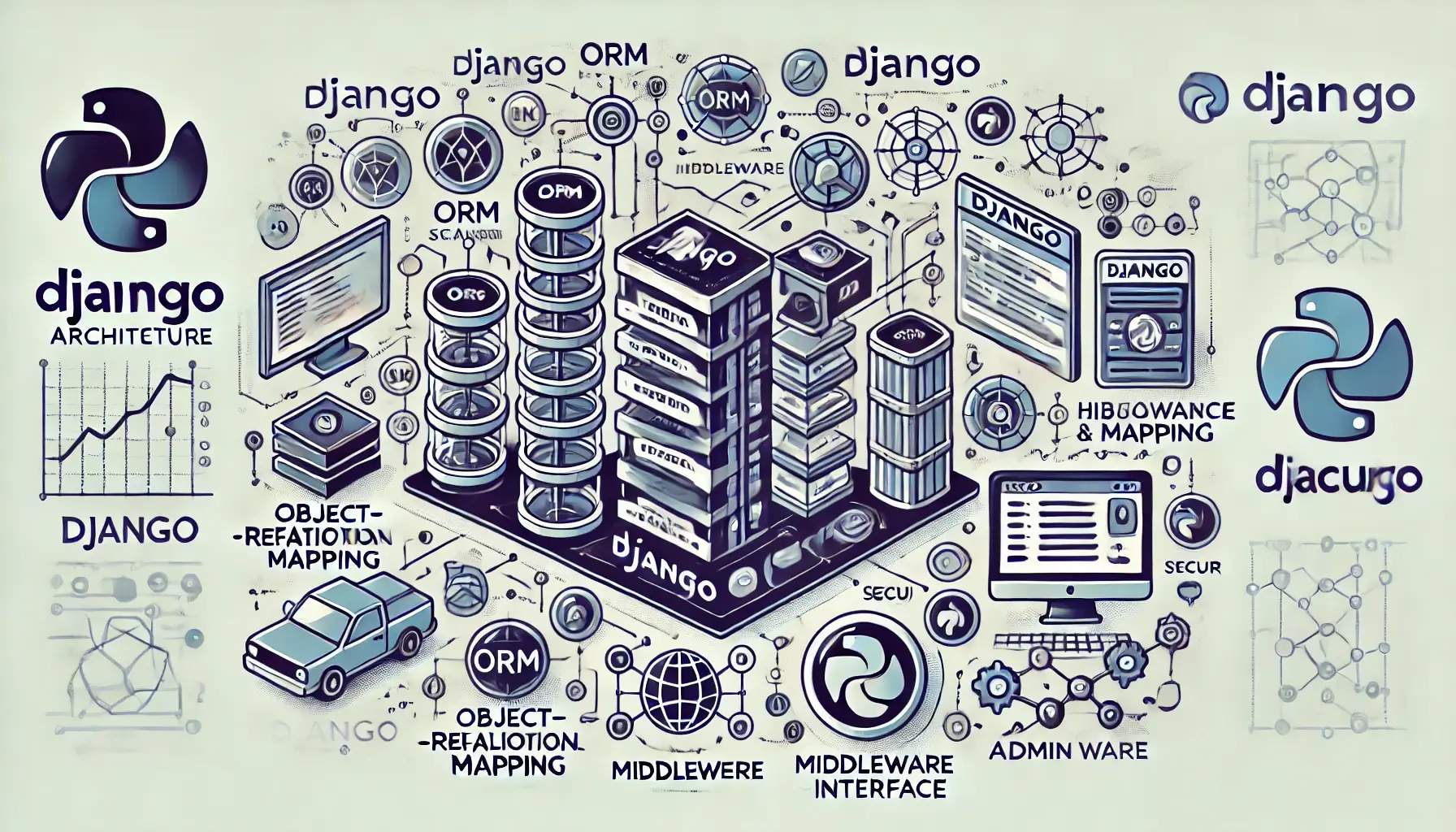
Indeed, Django has secured a position as one of the most powerful frameworks in the case of Python web development, especially for scalable purposes. Simply designed with a focus on rapid development, security, and scalability, Django arms developers with the necessary tools to craft applications that can scale with grace. But precisely what sets Django apart from other Python frameworks in building scalable web applications?
The Power of Django’s ORM-Object-Relational Mapping
The ORM is a major feature in Django that makes working with the database much easier. Instead of dealing with painful SQL queries, you get to work with databases as if you were working with Python code. That means you can create data models and manage them more intuitively. When your application begins to scale and so does your database, this makes scaling easier.
For businesses that will need to deal with quite a large volume of data, this is a must-have capability. ORM also ensures consistency across different databases, which will make migrations and upgrades easier. This will be much valuable in case of integrations such as features like SEO optimization for websites, where database structures may need to adapt as the content strategy evolves. By leveraging the use of ORM, DM WebSoft LLP ensures your application backend handles increased data loads with top performance maintained.
Middleware and Modular Architecture
Another reason why Django web development is ideal for scalability is due to its middleware support. Django uses middleware as a bridge between requests and responses. It gives developers an opportunity to provide facilities in a broadband manner such as website security solutions, caching, and authentication. This flexibility makes it easier to add in or modify features as user demands change and makes it possible for the web application to evolve without needing a complete overhaul.
Modularity is just what companies need that deal with eCommerce website development or custom software solutions where adjustments and integrations are needed fast. This allows DM WebSoft LLP to extend the application for specific business needs with Django’s middleware, hence assuring top-notch performance of the software even when the number of end users increases.
In-Built Admin Interface for Faster Development
Django’s inbuilt admin interface is one of the biggest boons to web development services, offering a readymade backend for handling website content, users, and other elements conveniently. With this onboard, it ultimately gears up the development and allows businesses to deploy functional applications sooner. Thirdly, it provides an easy way to manage data without facing the need for homemade dashboards. In this case, it saves us time and resources.
What it means to DM WebSoft LLP is that we can just focus on the development of substantial functionality in your application without having to reinvent the wheel for managing the backend. This is especially helpful when projects concern mobile application development or digital marketing, where each minute counts.
Caching and Performance Optimization
One of the main challenges in scalable web application development is how to keep the application responsive with increasing traffic. Django’s support for caching enables the developer to store frequently accessed data such that database queries are reduced, hence speeding up response times. This feature is helpful for applications receiving high traffic or sudden surges in user activity.
At DM WebSoft LLP, caching is used in a way so that the web applications always remain pretty fast and quick, even at times of peak usage and loads. In this respect, this would highly be important to those businesses relying heavily on mobile-friendly web design and SEO optimization for websites, given that the faster the loading of the site is, the better it would be for the users’ experience and the higher its ranking in search engines.
Security and Scalability Combined Security
lies at the heart of Django’s design, which, in fact, makes it one of the go-to frameworks when it comes to solving security matters for websites. With built-in protection against common vulnerabilities such as SQL injection, cross-site scripting (XSS), and cross-site request forgery (CSRF), Django covers your application so that it will scale safely. This in-built security allows businesses to maintain compliance according to industrial standards without being held back from growth.
At DM WebSoft LLP, with proficiency in Django development services, we ensure your web application is secure from day one. This, when merged with our best practices in website maintenance and support, provides businesses with a robust, scalable solution.
Comparison to Other Frameworks
Where Flask and FastAPI are popular due to their lightness, rich environment makes Django ideal for application development where scalability, speed, and security just can’t be trifled with. Unlike Flask—which is principally extended through other libraries—Django has many tools built-in that make working on larger projects easier.
That is why DM WebSoft LLP often recommends Django to a client looking for a custom software solution that is built to scale. With experience in a range of different frameworks, our team will help guide you in the selection of the best tools for your project, ensuring that your technology stack can support your business as it grows.
Best Practices for Building Scalable Web Applications with Django
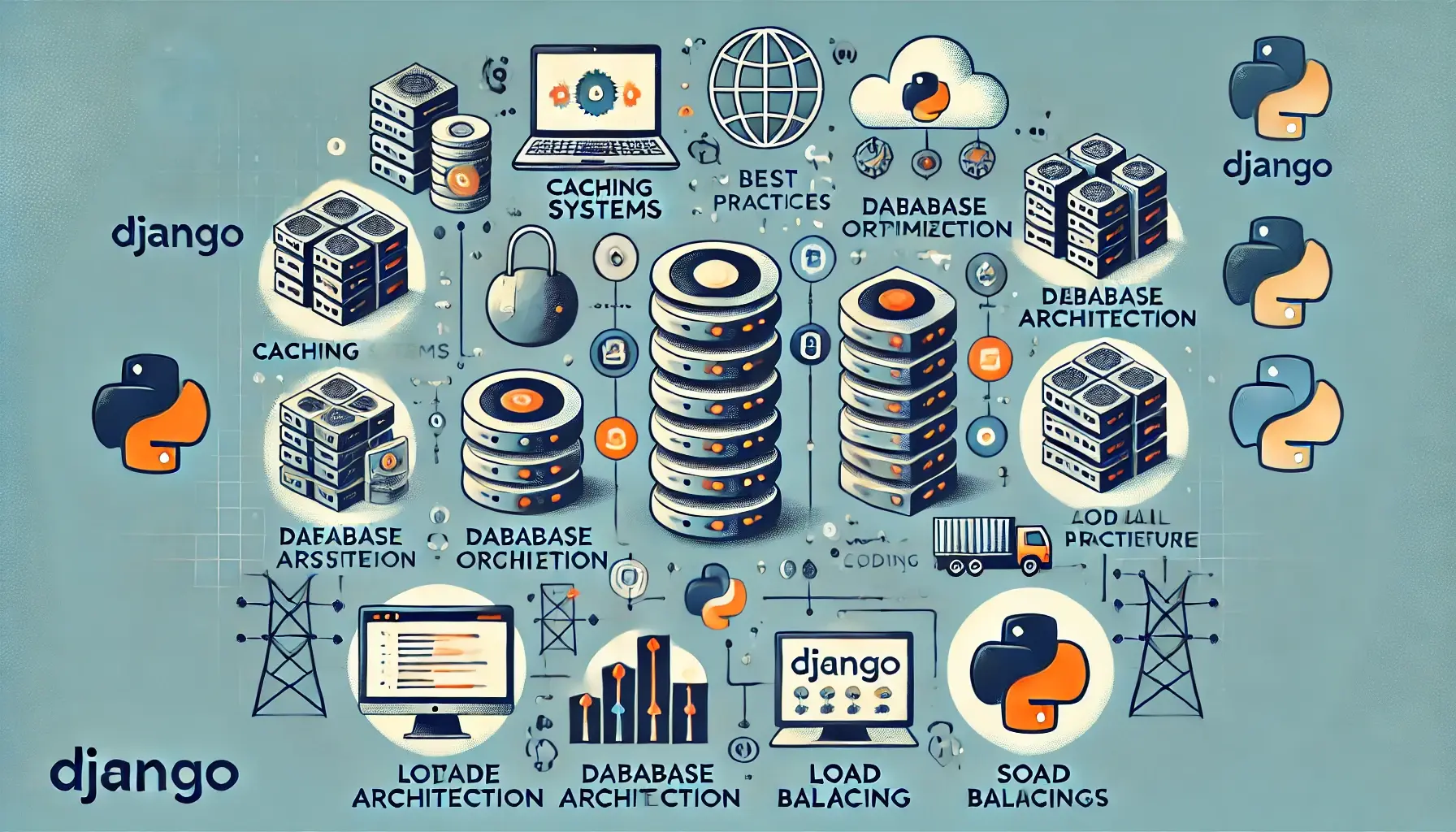
For scalable web applications, a proper organization of best practices in their development is needed in order for your application to scale without giving up performance. Through its features, Django allows developers to enrich and strongly architect many tools. Some key strategies and best practices that can allow developers and businesses to make the most out of Django web development and also future-proof their applications include the following.
Performance Database Optimization
The strength of an application determinedly lies in its database; therefore, a well-optimized database is important if an application has to grow in its number of users without slowing it down. This is accomplished a number of ways:
- Using Indexes: Putting indexes on frequently queried fields accelerates the database operations. It is very applicable to e-commerce website development where large datasets need to be searchable really fast.
- Optimize Queries: Since Django provides ORM capabilities for methods to optimize database queries, functions such as select_related and prefetch_related help avoid hitting the database when not necessary.
- Sharding and Replication: Sharding of the Database would distribute data across a large number of databases. Whether using replication, the read requests will be distributed across nodes to enhance overall performance.
At DM WebSoft LLP, our key focus has always been on customized software solutions that focus on database optimization so that responsive applications for our clients always remain intelligent with the growth in the user base.
Usage of Caching Strategies
This is one of the potent ways to help scale and make web applications faster. Storing data that is accessed more frequently on a temporary basis helps reduce the load from your database and speeds up the responses.
- Django’s Built-in Caching Framework: Django has various internal caching backends like Memcached and Redis, to name a few, for caching of views, queries, and even whole pages.
- Cache Static Assets: For applications that employ responsive web design for mobile, caching static image and CSS files can also improve page load times for the end-user.
- Utilize CDNs: Integrating a content delivery network could offload static content delivery onto servers closer to the user, reducing latency even further.
At DM WebSoft LLP, we ensure that our web development services include complete optimization in respect to caching configurations so that your scalable web application can support fast and efficient performance.
Modular Architecture and Microservices
To develop scalable web applications, a modular architecture has to be embraced so that much of the built-in complexity can be handled. Breaking an application into smaller independent parts lets each scale in their time.
- Apply Django Apps: The app structure of Django supports modularity, which allows the segregation and scaling of chosen functionalities of an application.
- Microservices Architecture: Even though Django is a monolithic framework, it can also be applied with microservices architecture where different services will communicate through APIs. This makes it perfect for custom software solutions where, for instance, different services like user authentication or data analysis would scale independently.
- API-first approach: A company mainly involved in the development of mobile applications could use Django to build the APIs, which is made quite efficient with tools like Django REST Framework, ensuring smooth integration with mobile apps.
These modular design principles ensure that your application can scale, and you can add new features or extend its current features without breaking the whole system.
Load Balancing for High Traffic Management
As user traffic increases, you will have to scale incoming requests across several servers to not overload a single server. This is where load balancing comes in:
- Horizontal Scaling: Add more servers to handle increased traffic. It works with load balancers like NGINX in order for horizontal scaling of applications to take place.
- Autoscaling with Cloud Providers: For dynamic traffic patterns, making use of autoscaling via cloud platforms such as AWS or Google Cloud automates the scaling of server capacity with demand.
- Database Load Balancing: Read replicas are implemented to distribute database read operations onto multiple servers; this is quite critical for web development services that need to handle volumes of user data.
DM WebSoft LLP integrates best web development tools with techniques of load balancing in such a manner that it does not allow your application to be unavailable based on the number of users accessing the application.
Security as a Foundation for Scalability
Security plays a very major role in application scalability. A secure foundation ensures that as your application grows it will be able to protect user data, and stay compliant with:
- Django’s Built-in Security Features: Leverage protections against CSRF, SQL injection, and XSS that Django provides to help protect user data.
- Monumental Use of HTTPS and Secure APIs: Applications involved in mobile app development or e-commerce website development, keeping communications over HTTPS is important.
- Regular Security Audits: It includes periodic updating of website security in view of emerging threats in maintenance and support.
So, merely following all such practices guarantees DM WebSoft LLP that your scalable web applications will be secure and ensure performance, hence giving peace of mind to focus on growth.
Conclusion
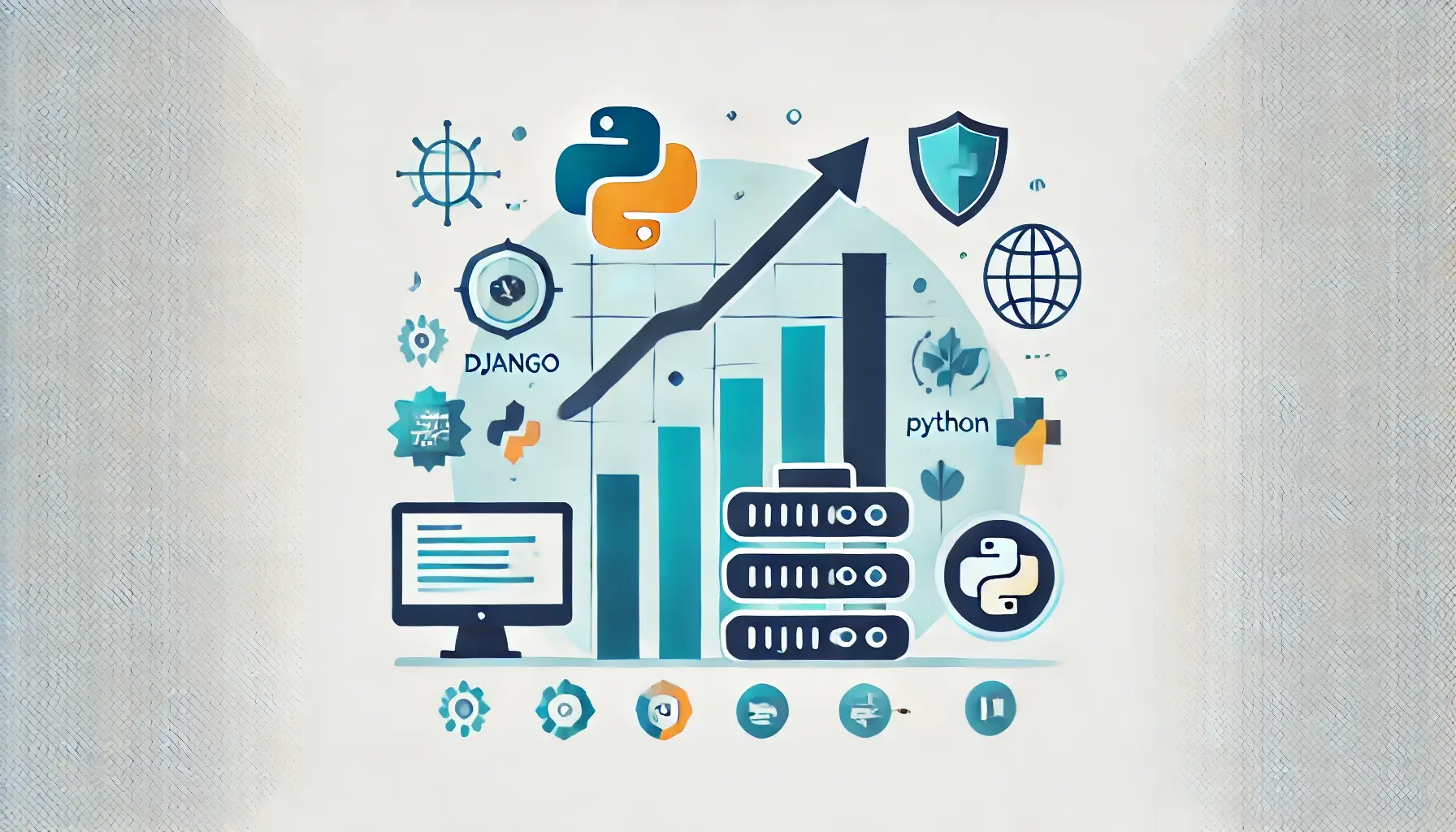
Criteria such as best practices enable organizations to guarantee the scalability and performance of their Django applications, thus making sure their digital solutions keep up with their user bases. That means database optimization, modular architecture, and even load balancing—these are all strategic methods of delivering a powerful backbone that corresponds to success over the long term.
Professional web development services commissioned from DM WebSoft LLP ensure that your applications will be ready for the demands of the future, and this continuity ensures continued growth in the user experience of your business. Now, in the next section, we will describe how DM WebSoft LLP can actually help businesses implement these strategies and thereby make us your go-to partner for custom software solutions and Django development services. Continue reading!
Django is a Python framework used for building secure, scalable, and high-performance web applications.
Django’s modular architecture, ORM, and caching support make it ideal for developing scalable web applications.
DM WebSoft LLP offers professional Django development services, focusing on building scalable and secure web applications tailored to your needs.
Best practices include optimizing databases, implementing caching, using load balancing, and adopting a modular architecture.
Python is popular for its simplicity, versatility, and robust ecosystem, making it an excellent choice for developing web applications of any size.
Get Started Now !
What’s the Process ?
Request a Call
Consultation Meeting
Crafting a Tailored Proposal
Get Started Now !
Real Stories, Real Results. Discover What Our Clients Say

Working with DM WebSoft LLP was a game-changer for our business. Their technical prowess and innovative solutions transformed our online presence. A highly recommended web development agency with a stellar track record.

We are thrilled with the results DM WebSoft LLP delivered. Their deep understanding of web development coupled with years of expertise ensured a seamless and visually stunning website. True professionals!

In a digital age where first impressions matter, DM WebSoft LLP crafted a website that speaks volumes. The team’s attention to detail and commitment to quality set them apart. Thank you for making our vision a reality.

DM WebSoft LLP’s team demonstrated unparalleled expertise. Their ability to navigate complex technical challenges with ease is truly commendable. Choosing them for our web development needs was the best decision.

Exceptional service, unmatched skills! DM WebSoft LLP stands out as a leading web development agency. Their collaborative approach and commitment to excellence make them our go-to partner for all things web-related.

DM WebSoft LLP turned our ideas into a digital masterpiece. The seamless communication and timely delivery of our project showcased their professionalism. Highly impressed with the level of creativity and skill.

Our experience with DM WebSoft LLP was nothing short of amazing. From concept to execution, their team provided top-notch web development services. A reliable partner for businesses looking to elevate their online presence.

DM WebSoft LLP’s team of tech experts is second to none. Their wealth of experience reflects in the quality of their work. Our website not only meets but exceeds industry standards, thanks to their dedication.

Choosing DM WebSoft LLP was the best investment for our web development needs. Their team’s proficiency, coupled with a customer-centric approach, made the entire process smooth and enjoyable. A pleasure to work with!



